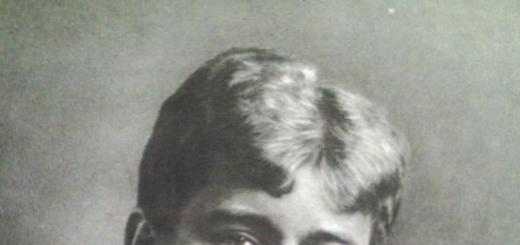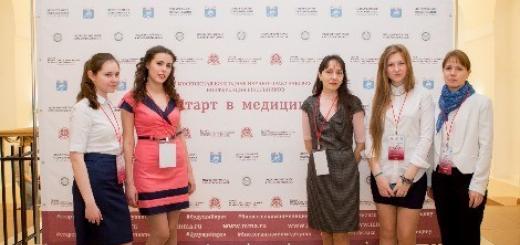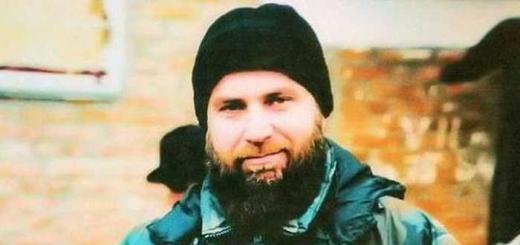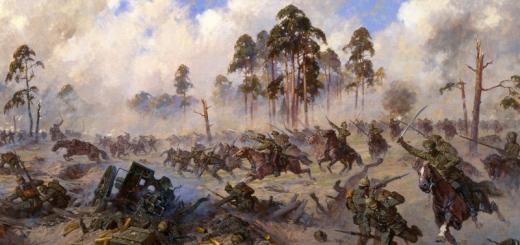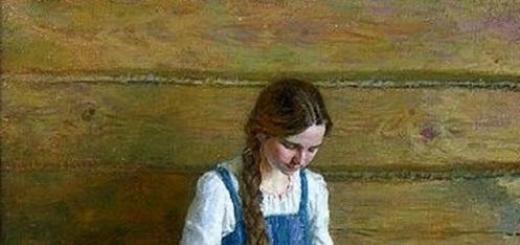The son of the poet Sergei Yesenin, Alexander Yesenin-Volpin is the only survivor of his children. He is known as a major scientist in the field of logical-mathematical theory. Philosopher, poet, dissident, he has lived in forced emigration in Boston, America, since 1972.
He is considered the ideologist of the human rights movement, the fortieth anniversary of which the world celebrated last December. Despite his age, Alexander Sergeevich continues to work at an increased pace - he publishes works on logical-mathematical theory, travels to give lectures at US universities, and actively collaborates with the dissident movement. He doesn’t feel his age, he lives his own business. And now his main goal is to prove the validity of his mathematical theory.
And behind is the life of a politically persecuted scientist, full of difficult adventures, who took the path of dissidence due to his character and convictions.
- Alexander Sergeevich, you are often invited to give lectures at American universities. Are you interested in them as a mathematician or a human rights activist?
Lately it's been more of the latter. I was recently invited to give the keynote address at Columbia University at the Grigorenkov Readings, organized by the Grigorenko Public Foundation and the Harriman Institute. I was invited by Andrei Grigorenko, president of the foundation, son and ally of the dissident, General Pyotr Grigorievich Grigorenko. This year's readings were dedicated to the 40th anniversary of the human rights movement. I remembered the importance of the speeches of the late Grigorenko even before the start of our movement. At the demonstration on December 5, 1965, I did not know him. But the next year he was already sitting in my apartment, and we could not leave: the house was surrounded by KGB agents.
- During the 33 years of your life outside your homeland, a lot has been written about you. How would you define your role in the human rights movement?
Like not very big.
- Explain?
In fact, my physiognomy and my father’s surname played a significant role. Maybe she helped me get the floor, but prevented me from speaking to the point. My father had nothing to do with the struggle for judicial transparency: in those years when he lived, it simply did not exist. This topic arose after Stalin's death. And during any speech, I always reduced the conversation to publicity, but they wanted to hear something else from me.
At that very first demonstration on December 5, 1965, we demanded publicity of the trial of Sinyavsky and Daniel. This was my slogan. I took it from an article in the Code of Criminal Procedure, where it was written: “glasnost”, “publicity”, “openness”. And if “publicity” is written into the law, then we demand compliance with the law. So 20 years before Gorbachev we started talking about glasnost.
And I formulated another slogan like this: “Observe the Constitution!” But for some reason ours announced: “Respect!” And thanks for that.
- There are legends about your “Memo for Those Facing Interrogations”...
It was also written based on the position of transparency and the requirement to comply with procedural laws. And I knew them well. My maternal grandfather was a famous lawyer and left a lot of literature. In addition, I myself studied all the Soviet codes. I did a lot of this in exile. Plus my personal experience and ability to piss off investigators. In the “Memo”, I advised those being interrogated to check every phrase of the protocol written by the investigator. From the very beginning, he advised me to clarify: “What business did you call me for?” And then ask a counter question to any question: “What does this have to do with this case?” and so on.
I think that if the “Memo” is rewritten in relation to today’s laws, it can be used today. Because the essence of the problem is the same.
- In your opinion, are there political prisoners in today's Russia?
It is sometimes difficult to draw the line between persecution on purely political grounds and on other grounds. It was officially believed that there were no political prisoners in the USSR; those arrested were charged with criminal charges such as “disturbing public order” and “slander.” After Gorbachev's perestroika, in the 90s, as far as I know, there really were no political prisoners in Russia. Now, apparently, people are again appearing who ended up in prison precisely for political reasons, regardless of what article they are accused of.
- How did you personally suffer from the authorities?
Yes, I didn’t really suffer. I ended up in the St. Petersburg psychiatric hospital twice. Yes, even two and a half years in exile, because under Khrushchev he published “Spring Leaf” abroad, where in poetry he also touched on the topic of repression. And by the time the movement began, I was over 40, and those young people were over 20. Naturally, they listened to me. In the 60s, I no longer wrote poetry, but studied mathematics. I just sent my latest work to my student in Holland for publication. I say what I think.
- Are you talking about science now?
About everything. You need to tell the truth. And people don't really care about the truth.
- And if we compare the time of the 60s and today’s legal chaos in Russia and in the post-Soviet republics?..
I want to know specifically what this means. I know about the Khodorkovsky case, but I don’t know the essence of business legislation. Maybe he really violated some prohibitions. Of course, it’s bad that he’s sitting. Russia needs businessmen. And I need facts. So I’m going to go to Russia and I think I’ll see something. Of course, if they give you a visa.
-Are you satisfied, for example, with the American judiciary?
I had no clashes with her on a civil level. I am satisfied that she did not interfere in my affairs.
- But you observe life around you. Do you think it is easier or more difficult for a person in this state?
I think it's not ideal. I vote for the Democratic Party. It's a little better under her than under the Republicans. In general, it’s better here, of course. Not many people want to leave here. But the existing advantages are not enough to have a significant impact on Russia.
- Do you approve of the White House's policy towards Iraq?
In my opinion, the White House lost in Iraq. America could wise up. I am against people dying on both sides. It was impossible to start a war so rudely. And Saddam could have been dealt with differently. I'm afraid the Republicans will lead to trouble. Although I am not a conservative, not a reactionary. Most Russian immigrants associate themselves with Republicans. This choice is alien to me. I am non-partisan.
- And they also say that you are an atheist.
I am a formalist. If we give some place to mysticism, this does not mean that we need to abandon the idea of comprehending the world with our minds. True, I don’t make a worldview out of this. Today it can be proven that there is not one, but many worlds. It follows from this that I do not believe in the Creator as the One Creator of a single world. Because in this way we narrow our perception of the Universe.
- Tell me, does life experience change a person’s worldview?
In my youth I liked to repeat my own saying: “Life is an old prostitute whom I did not take as my governess.” As I got older, I realized that experience can and should be taken into account. The main thing is to resist the abnormal experience.
- Let's talk a little about personal things. Has your father Sergei Aleksandrovich Yesenin ever seen you? After all, you were one year and seven months old in December 1925 when he passed away.
Saw. About twenty years after my birth, I visited the house in Leningrad where I once lived, my apartment. So the neighbors on the floor said that Yesenin came in the absence of his mother to look at the baby, that is, at me, but I didn’t remember him (laughs).
- Didn’t your mother get married after this love?
Came out. My stepfather is the famous chemist Mikhail Volkenshtein. In his last years he lived alone in Leningrad, lived until the end of Soviet rule and died in 1992.
- Did you maintain family ties with your brothers and sister?
Yes. True, there was no particular closeness with Kostya, because he was a member of the party. He died on the eve of the Chernobyl explosion, on April 25, 1986. Tatyana lived in Tashkent and died in 1992. But I’m going to meet Marina, Kostya’s daughter, in Moscow in December. (Konstantin and Tatyana are the children of Sergei Yesenin from his marriage to actress Zinaida Reich, later Meyerhold’s wife. – Ed.).
- What about George?
He died early, during the years of the Yezhovshchina... (Georgy is the illegitimate son of Sergei Yesenin and Anna Izryadnova. - Ed.)
- Could you describe yourself? What kind of person are you?
Skeptic.
- “Question everything”?
At least I'm trying.
-Are you easygoing in everyday life?
When I'm not disturbed, I'm easygoing. But they don’t interfere much.
- If it’s not a secret, who is your wife?
I had four of them. With the last one, Galya, we have now parted ways. She could not stand my godless glances.
- Which of your works are most important to you?
Of course, in mathematics. I am better known in the field of foundations of mathematics as a fundamentalist, although some like to repeat that, first of all, I am Yesenin’s son and a dissident. But the latest work, which I just sent for printing, is very impressive. I'm sure there will be conversations. I seriously intend to promote it!
- How do you have enough time for all this? After all, it’s already over eighty?
I have enough time. If my mother lived for almost a hundred years, then I’m going to be a hundred and fifty, and a hundred, a hundred, ten, or a hundred and twenty—that’s for sure!
***
Alexander Sergeevich was born on May 12, 1924. His mother is Nadezhda Davydovna Volpina (1900-1998), an outstanding writer, translator (thousands of pages of translations from German, French, Greek, Turkmen, including Ovid, Goethe, Hugo, etc.), author of the memoir “A Date with a Friend” ". In her youth, she wrote and read poetry from the stage. In the 20s, she joined the Imagists, and then she met Sergei Yesenin. At the beginning of 1924, after a break with Yesenin, she left Moscow for Leningrad, where she soon gave birth to a son.
Mother and son moved to Moscow in 1933. Alexander Sergeevich graduated from Moscow State University in Mechanics and Mathematics, defended his dissertation in mathematics and received a teaching position at Chernivtsi University (Ukraine). There he was first arrested for reading his own poems with friends - the poems were recognized as anti-Soviet. He was declared insane, placed in a Leningrad psychiatric hospital, and soon sent into exile in Karaganda for five years, but three years later, in 1953, after the death of Stalin, he was released under an amnesty and returned to the capital.
And then - science again, its own direction - ultra-intuitionism, dozens of poems. In 1961, his collection “Spring Leaf” was published in New York - for lovers of poetry, and “Free Philosophical Treatise” - for those whose conscience cannot remain silent.
By the way, the publication of “Spring Leaf” in New York is the second case, after “Doctor Zhivago,” in the history of Soviet literature when a book was published abroad without the sanction of the authorities and under the real name of the author.
And then - a whole series of new “crazies”. He is the author of most of the slogans of the human rights movement. It was he who composed the text of the “Civil Appeal” - a call for a demonstration on December 5, 1965, organized by Vladimir Bukovsky in connection with the arrest of writers Sinyavsky and Daniel.
Yesenin-Volpin is the author of the most famous document of the dissident movement at that time - “Memos for those who are facing interrogations” (1968). It was passed on to each other by those persecuted within the country, and in 1973 it was published in Paris.
They took him to Lubyanka and let him go: there was nothing to grab onto. He reminded the authorities that dissent is not at odds with the law, and therefore should not be punished.
Volpin's wife Victoria recalled: once, during a three-hour conversation with investigators, Alexander Sergeevich exhausted them so much that they gave up, called her and said: “Take it!”
He actively worked in the Human Rights Committee, created by Dmitry Sakharov, Valery Chalidze, Andrei Tverdokhlebov. He wrote reports on the right to defense, on the rights of the mentally ill, on international covenants on human rights, etc. As a result, in March 1972, the authorities made Alexander Sergeevich understand that it would be better for him to leave the country. And already in May of the same year he emigrated to the USA.
At the age of 92, Alexander Sergeevich Yesenin-Volpin, the one who formulated the main demand of society for the (then Soviet) government, passed away: to comply with its own laws. He insisted on a legal approach in relations between the state and citizens. This became the slogan of the dissident movement in the USSR (hence the name - right protective). And it was with him (“Respect the Soviet Constitution!”) that he and two hundred other people went to the first “anti-Soviet” demonstration - at the monument to Pushkin on December 5, 1965. The result of this action for Yesenin-Volpin was a mental hospital.
Thus, he and General Grigorenko discovered a new island in the Gulag archipelago, where they were placed, and then they began to bring more and more kicking islanders. It was easy to declare Yesenin-Volpin a “nutcase”: he was engaged in some incomprehensible branch of mathematics, more precisely, mathematics, which brought nothing to the national economy (besides, all mathematics is built on two final results: “true”, “false”), he wrote that something philosophical, but far from Marxist-Leninist, and also sprinkled poetry - but not at all as beloved by the people as his “illegal” father Sergei Yesenin could do.
By the way, Sasha was one year old when his famous and loving father was found in a noose at the Angleterre Hotel in St. Petersburg.
Yesenin-Volpin tried to extend the principles of mathematical logic, and simply logic (and law!) to the relations between society and the state. This turned out to be the biggest sedition: the Soviet government was irrational, deceitful, hypocritical and had great difficulty recognizing the laws of universal gravitation, especially mathematics. So she, so as not to be clever, sent Alexander Sergeevich either to psychiatric hospitals, then to prisons, then to camps (he served 6 years in them), and in the end, in 1972, she forced him to emigrate.
That is why Yesenin-Volpin died not in his homeland and the homeland of his father, almost the most Russian of Russian poets, but in Boston (USA), on March 16 of this year. Having lived a difficult, but very varied and extremely worthy life.
As for psychiatry, Bukovsky gave him the most accurate diagnosis: “pathological truthfulness.”
P.S. We present to your attention an excerpt from Yesenin-Volpin’s “Memo for Those Facing Interrogations.” This is a practical guide for those who do not want to expose their loved ones, acquaintances and themselves to the millstones of a totalitarian system. The name itself sounds threatening and somehow too modern and timely, in my opinion. As well as the recommendations of the “Memo...”.
Oleg KHLEBNIKOV,
"New"
Alexander ESENIN-VOLPIN
From “Memo for those facing interrogation”
Anyone can be unexpectedly called in for questioning, which means you need to be prepared for this. Interrogations are different: they interrogate the accused, arrested and non-arrested, interrogate witnesses, interrogate and just like that, just in case. They are interrogated about actual crimes and about actions that are completely not provided for by the criminal code. Investigators are interrogating, but not only them. Semi-official and not at all official conversations are imposed on the citizen by party secretaries or some strangers related to the “authorities” and who do not present any documents.
Such conversations often differ little from interrogations. The interrogated person faces many difficult questions: how to behave so as not to worsen the situation; After all, if they interrogate, that means it’s already bad. Some are more worried about themselves and their loved ones, others are calm about this, but are afraid of hurting their friends.
During an interrogation, it is too late to begin to determine your position and develop a line of behavior - the one who interrogates knows his business and will be able to outplay the unprepared. Therefore, if you are afraid of interrogation, if you can be afraid of it, prepare for it in advance. Prepare yourself before you do anything that could lead to you being questioned, otherwise you, with the best of intentions, may end up getting confused and betraying those you don't want to. If you are caught off guard, the best thing to do is to take your time with your answers, refuse to answer on that day, and gain time to prepare.
<…>Always before a possible summons for questioning, try to evaluate the events about which you will be questioned from a legal point of view. If you are not in prison, take the criminal code and find in it those articles that relate to the case in question.
<…>But what is of particular importance for you during interrogation is not so much the Criminal Code as the Code of Criminal Procedure, which establishes the rules for the proceedings of the case during the investigation and in court, and, in particular, the rights and obligations of the accused and the witness and the procedure for conducting interrogations. Here's what you need to know first.
1. The Criminal Procedure Code implements only interrogations carried out during the investigation and in court. All other interrogations are conversations, and the law does not establish any liability for anyone for refusing to answer. However, if the law establishes liability for failure to report the crime in question, such a refusal may aggravate this liability. The law, in particular, does not provide for criminal liability for failure to report anti-Soviet agitation and propaganda, organization or participation in group actions that violate public order, etc. The law provides for criminal liability for failure to report participation in an anti-Soviet organization and other state crimes provided for in Art. 64-69.
2. Criminal liability for refusal or evasion to testify<…>established only for witnesses and victims. In particular, the accused is free from it (the right to answer questions in any way or not to answer them at all).<…>
4. <…>Leading questions are not allowed. You must remember this order - if it is violated in any way, then this is not an interrogation, and you may have grounds for refusing to answer.<…>
7. <…>Main:
a) the editing of your testimony should be yours, and this is much easier to achieve if you write it yourself;
b) in order to get you to sign a finished text, it is enough to get only two or three seconds of weakness or inattention from you, and to force you to write a serious text with which you do not agree is, hopefully, completely impossible.
Handwritten recording of one’s testimony is one of the most important conditions for the interrogated person to control himself during the entire interrogation.<…>You can, for example, write down your testimony on your own paper (not in the protocol), and then dictate it to the investigator. This will take a lot of time - and most likely it will be in your best interest.<…>
14. <…>Here are some tips for the case when a witness does not want to testify and does so only because of his obligation, risking harm to the legal interests of others with his answers:
a) having appeared for questioning, do not begin to testify until the investigator says for what case the witness has been summoned.<…>
b) do not name any names and do not give any information about persons whose names the investigator did not pronounce;
c) do not write or sign answers and other testimony that contain names and other information about persons whose names have not yet appeared in the questions written by the investigator;
d) to dismiss, if possible, all questions about persons in respect of whom the case for which the witness was summoned has not been initiated.<…>
"You don't have to lie"
In memory of the hero who ushered in the era of dissidence
The departure of Alexander Sergeevich Yesenin-Volpin marks the end of an important era. He made public a simple and worthy behavior pattern: don’t lie.
He was the organizer of the first performance in 1965 on Pushkin Square. The subject of the speech was the demand to comply with one’s own Constitution.
This was a requirement to live according to the law, and not according to concepts, which, of course, has not yet been fulfilled. And what Yesenin-Volpin called for then was a public discovery. He addressed not only the state, but also the individual, saying: you can live with dignity, not lie, be yourself, and this will be your personal protection from the dirt surrounding you. He himself lived by this rule long before this meeting took place.
After the meeting there were his quasi-legal texts, literate and very precisely targeted and morally rich. And he ushered in the era of dissidence of the 50-80s. Those I did things with or sat with always talked about how much his position affected them.
It was a very difficult position. Lies were the rule of life in Soviet society. Every year you had to make socialist commitments. Everyone understood that this was pure crap—those who wrote them, those who collected them and summed them up, but that was how it was supposed to be. And the Soviet citizen had many responsibilities of this kind: at public meetings it was an inappropriate risk to abstain from voting or to speak out against it.
There were people who went into internal emigration and did not do what was disgusting for them, but this public proclamation was the first. Alexander Sergeevich introduced a simple idea into the public consciousness: this is not a rule at all - it’s your bad habit. A typical example is the story with his participation. He was visiting Chelidze, I think, at Flora Pavlovna Yasinovskaya’s, and the phone rang. And one of them says: “They’re probably calling me, and this is so inopportune.” Then they both went out into the corridor and said to the landlady: “If this is for us, please tell me that we are not here.” They could not allow lies even about such a small thing, so so that the hostess could say that they were not there, they left.
After he left for America, he and I once talked about what was happening in our country in the late 90s - early 2000s. He believed that the history of our domestic development had again deviated from the gradual, difficult path, had again become distorted, and this was extremely dangerous. And he stated the beginning of this turn of ours very accurately and very sadly.
Sergey KOVALEV,
human rights activist, -
especially for Novaya
Nadezhda Volpin is a poet and translator who began her creative career at the dawn of the 20th century. However, what brought her the greatest popularity was not so much her writings as her affair with Sergei Yesenin, which began in 1920. This article will be devoted to the biography of this amazing woman and her work.
Nadezhda Volpin: biography
The future poetess was born in 1900 in Mogilev. Her father, David Samuilovich Volpin, was a graduate of Moscow University and became famous for his translation of J. J. Fraser’s book “Folklore in the Old Testament”; he made his living as a lawyer. Nadezhda’s mother, Anna Borisovna Zhislina, was a music teacher, largely due to the fact that she graduated from the Warsaw Conservatory as a girl.
Volpin Nadezhda Davydovna herself did not follow in the footsteps of either of her parents and, having graduated from the so-called “Khvostovskaya” classical gymnasium in 1917, she entered Moscow University to study at the Faculty of Physics and Mathematics. However, the girl mastered foreign languages, which were so useful to her later in life and allowed her to become a translator, at the gymnasium. In addition, Volpin studied at the university for a little over a year, then quit, realizing that natural physics was not her calling.
Nadezhda Davydovna’s rich and vibrant life as a poetess began in 1919, when she joined the Imagists and began working in Andrei Bely’s studio “Green Workshop”. In the same year, another significant event occurred in her life.

First meeting with Yesenin
Sergei Yesenin and Nadezhda Volpin met in the Pegasus Stall cafe, where the second anniversary of the October Revolution was celebrated. On this occasion, many poets gathered in the cafe and read their works from the stage. Yesenin was one of these invited guests, but when it was his turn, he answered the compere that he was “reluctant.”
Volpin, who was present at the evening, was a passionate fan, so she plucked up courage and approached the poet and asked to read poetry. The poet, known for his weakness for the female sex, could not refuse the lovely girl. In response to her request, he bowed with the words: “For you - with pleasure.”
From that moment on, their frequent meetings began in this cafe, after which Yesenin accompanied the girl home. On the way they talked a lot about poetry and literature. Once Yesenin even gave Volpin a book of his poems with the signature “To Hope with Hope.”
Conquest
Nadezhda Volpin, whose memories of Yesenin were not always the most pleasant, wrote about this period of their communication that she constantly had to fight off the poet’s confessions. For three whole years the girl managed to keep Yesenin at a distance, despite her sincere love for him.
This was largely due to the fact that at that time the poet was still officially married to whom he had two children. Yesenin had not lived with this woman for a long time, but the very fact of marriage seriously worried Nadezhda.
Only in 1921 did the lovers become truly close. However, this did not bring them much joy. They often quarreled, mainly because of the poet's wild life. Yesenin admitted that he was afraid of getting too close to Nadezhda, which is why he disappeared so often.

Yesenin's romance with Isadora Duncan
And in 1922, the poet’s scandalous affair with the famous dancer Volpin began, Yesenin’s common-law wife could do nothing to prevent this union, and did not intend to. This came as a blow to her. The situation was aggravated by the fact that everything was happening before her eyes - she and Yesenin had a common social circle.
Nevertheless, when the poet broke up with his next passion and wished to return, Nadezhda Volpin accepted him. Joint visits to friends, visits to cafes, and gatherings at home have resumed. Gradually she became the person who delivered the quickly tipsy poet home. And Yesenin got drunk more and more often, it began to seem to him that he was being persecuted. He told Nadezhda more than once about his fears.
Birth of a child
Soon Nadezhda Volpin found out that she was pregnant. Hearing about this, Yesenin was not happy, but stated that he already had children and that seemed to be enough for him. To this Volpin replied that she did not need anything from Yesenin, and she was not trying to marry him to herself.

After this unpleasant conversation, Nadezhda leaves for St. Petersburg, deciding to break off all relations with the poet. Their son, Alexander, was born in 1924, on May 12, in the same place, in the Northern capital. Nadezhda tried in every possible way to avoid possible meetings with Yesenin. She even settled not with the poet’s friends, whom he asked to shelter her, but in a small, completely uncomfortable room. Yesenin strongly scolded Nadezhda for this, but she did not deviate from her plan. Volpin always strived for independence and independence.
The boy was very similar to Yesenin. The poet never saw him, but often asked his friends what he was like. To the answer that he was the spitting image of Sergei in childhood, Yesenin replied: “That’s how it should be, because she loved me very much.”
After Yesenin's death
It was difficult to live alone with a small child, and Nadezhda Volpin began to earn money through translations. These were mainly works of European classics: Walter Scott, Merimee, Cooper, Conan Doyle and others. She was able to reproduce the author's individual style, and the poet's experience helped with translations of poems by Goethe, Ovid and many others.
During the Great Patriotic War, Volpin was evacuated to Turkmenistan, to Ashgabat. Here she quickly mastered the Turkmen language and began translating national folklore and poetry.

During the years of repression, Alexander Volpin-Yesenin was arrested for anti-Soviet activities. For Nadezhda, this was a severe ordeal, which ended with the migration of her son to the United States.
The poetess’s life journey ended in 1998, on September 9. In recent years, Alexander's ex-wife, Victoria Pisak, has been courting her.
Volpin Nadezhda Davydovna: creative path
As noted above, the poetess’s creative path began in the 1920s, although she tried to write poetry while still a high school student. Moscow has opened up new opportunities. In particular, the literary cafes “Stable of Pegasus” and “Cafe of Poets” were very popular. Here is one of Volpin's poems from this period:
“Songs are torn from my throat,
Bloody sweat on my forehead...
Your chains, Revolution,
Freedom is sacred to the heart!”

However, Volpin is better known as a translator. The volume of work she has done is truly colossal - thousands of text pages. Nadezhda Davydovna was a very educated person with a broad outlook and excellent memory. I knew many of the poets' poems by heart. This same phenomenal ability to memorize helped her master a considerable number of foreign languages. Since 1970, Volpin began work on her memoirs, in which she described in detail the poetic life of the Silver Age. I paid a lot of attention to the life of Sergei Yesenin. Many of these works have now been published.
Volpin (Yesenin-Volpin) Alexander Sergeevich (b. 05/12/1924, Leningrad). Son of the poet S.A. Yesenin and poetess and translator N.D. Volpin.Since childhood, I have been interested in mathematics and poetry. In 1933 he moved to Moscow with his mother. In 1941 he entered Moscow University, and in 1946 he graduated with honors from the Faculty of Mechanics and Mathematics. During the Great Patriotic War, V. was not drafted into the army, since he was recognized as mentally ill (the stigma of being mentally ill accompanied him throughout the years of his life in the USSR). While still a student, he became known as a talented poet and repeatedly performed publicly reading poetry: “Alik read his poems. In terms of the feeling of brightness, it was one of the happiest moments of my life. A young, handsome, very curly man. Ringing voice. Son of the semi-banned Yesenin. And completely unusual poems, no one wrote like that then” (from the memoirs of mathematician Vl. Uspensky). In 1949, after graduating from graduate school at the Research Institute of Mathematics at Moscow State University and defending his Ph.D. thesis, V. went to work in Chernivtsi (Ukraine). There, on July 24, 1949, he was arrested by state security authorities for reading his poems with close friends.
He was transferred to Moscow, to the Institute named after. Serbsky was declared insane and, by a resolution of the Special Investigation Department under the USSR Ministry of State Security dated October 1, 1949, was sent for compulsory treatment to a Leningrad prison-type mental hospital. However, on September 9, 1950, by a new resolution of the OSO, E. was sentenced to 5 years of exile in the Karaganda region of Kazakhstan as a “socially dangerous element.” There he became friends with young exiled poets whom he had met in Moscow before his arrest - N. Korzhavin and Yu. Aikhenvald.
In April 1953, V. was released under an amnesty and returned to Moscow. He became widely known among mathematicians as one of the largest specialists in mathematical logic and the foundations of mathematics, the creator of an independent scientific direction - ultra-intuitionism. At the same time, he continued to write poetry and openly communicated with foreigners. In July 1959, at the request of one of them, V. outlined his philosophical credo on paper in one day. He finished it like this: “My friend, after listening to a brief summary of the treatise, said: “So you believe only in thought and reason?” - Yes, of course, there is nothing more to believe in. But you don’t have to believe in these things either. You don't have to believe in reason. For a thinking person it is enough to be reasonable.” Soon after this, V. was again imprisoned in a psychiatric hospital, where he was kept for about two years. Meanwhile, the text of his essay (under the title “Free Philosophical Treatise”), according to his wishes, was sent to the West and published there in 1961 along with a collection of his poems “Spring Leaf”. This was the second case, after B. Pasternak’s novel “Doctor Zhivago,” when a Soviet citizen dared to publish his works abroad under his own name without official sanction.
From the high party rostrum, Secretary of the Central Committee for Ideology L.F. Ilyichev denounced V. as an “ideological renegade” and called him a “poisonous mushroom” (Ilyichev L.F. Create for the people, in the name of communism // Pravda. 1962. December 22). V.'s poems were distributed in samizdat. Traditional in form, his poetry was defiant in relation to the dominant ideology: “Eh, fellow citizens, cows and bulls! / What the Bolsheviks brought you to...”
Having been released in 1961, he became a freelance researcher at VINITI and worked there until leaving the USSR. He was engaged in summarizing and translating foreign mathematical literature, and wrote articles for the Philosophical Encyclopedia.
The basis of V.'s mathematical and philosophical views is extreme skepticism - the denial of all abstract concepts taken on faith - God, infinity, etc. From this follows the need for strict adherence to formal logical laws. Since the early 1960s, he has applied this philosophical position to the field of law. He was the author and propagandist of a number of principles that formed the basis of the “human rights ideology” - transparency of actions, commitment to the requirements of compliance with the rule of law. “Alik was the first person in our lives who spoke seriously about Soviet laws” (From the memoirs of Vladimir Bukovsky). V. not only propagated the idea of appeal to law among his friends, but also took a number of practical steps within the framework of the legal approach to resolving social conflicts. Thus, in 1963, V. sued a journalist who repeated L.F.’s invective in his article. Ilyichev to him. This act was so unusual for that time that the court accepted the case for consideration, although, of course, it decided not in favor of the plaintiff.
After the arrest in September 1965 of the writers Y. Daniel and A. Sinyavsky, V., together with E. Stroeva and V. Nikolsky, compiled the text of a “Civil Appeal” with a call to gather on December 5, 1965 on Pushkin Square in Moscow for a “glasnost rally.” Young poets, members of the SMOG group, helped him organize the rally. V. himself took part in this meeting, from which it is customary to count down the history of the human rights movement in the USSR.
At the end of 1967 - beginning of 1968, V. was one of the organizers of the petition campaign around the “trial of four”, consistently opposed violations of the law committed during the criminal and psychiatric persecution of dissidents, and signed dozens of human rights documents. “A Memo for Those Facing Interrogations,” written by him in 1968, served as an indispensable guide for dissidents in their legal opposition to the Soviet punitive system. The key thesis of the “Memo” was the assertion that the norms of Soviet procedural law are quite suitable for legally avoiding complicity in the persecution of dissent, without resorting to lies or denial.
V.'s next imprisonment in a psychiatric hospital (February 1968) caused a wide campaign of protest among Soviet and foreign mathematicians.
In November 1970, V. became an expert at the Human Rights Committee in the USSR, for a year and a half he actively participated in the work of the Committee, wrote several reports (on the right to defense, on the rights of the mentally ill, on international covenants on human rights).
In March 1972, the authorities made it clear to V. that his departure abroad would be highly desirable; in May of the same year he emigrated to the United States. He worked at the University of Buffalo, then at Boston University. He continued to study mathematics and human rights activities.
Since 1989 he has visited his homeland several times. Lives in Boston (Massachusetts).
Lukashevsky S.M.
Used materials from UFO magazine
Publications:
Spring leaf / A leaf of spring. N.Y.: Praeger; London: Thames and Hutson, 1961. 173 pp. (bilingual edition, with translations into English by G. Reavey); Poems // Soviet secret muse: From the poems of Soviet poets, not written for publication / Ed. B. Filippova. Munich, 1961. pp. 113-122; A poet in jail // Encounter. 1961. Apr. No. 5 (92). P. 92-94 (preface and selection of poems); About the trial of Sinyavsky and Daniel, the departure of Tarsis and my conversations with Western correspondents // White book on the case of Sinyavsky and Daniel / Comp. A.I. Ginsburg. Frankfurt am Main: Posev, 1967. pp. 399-405; Eternal pen to Peter Grigorievich Grigorenko! // Sowing 1970. No. 9. P. 24-30. The same: A fontain pen for Peter Grigorievich Grigorenko // The Political, Social and Religius Thought of Russian Samizdat. Belmont (Mass.): Nordland publ., 1977. P. 181-196; [Reports and opinions of an expert of the Human Rights Committee] // Documents of the Human Rights Committee: Proceedings of the Moscow human rights Committee. Nov. 1970 - Dec.1971. N.Y.: The International League for the rights of men, 1972. P. 52-55, 67-122, 134-179; Testimony of Dr. Alexander Sergeyovich Yesenin-Volpin... // US. Congress (92). Session (2). Sept. 26. 1972. Hearing before the Subcommittee to the Investigate the Administration of the Internal Security Act and other Internal Security Laws of the Committee of the Judiciary United States Senate. Abuse of psychiatry for political repression in the Soviet Union. Washington: G.P.O., 1972. P. 1-15; Legal memo. Paris: Gd. de la Seine, . 24 s.; [Poems] // Anthology of the latest Russian poetry by the blue lagoon / Comp. K. Kuzminsky and G. Kovalev: In 5 volumes. Newtonville: Oriental Research Partners, 1980. T. 1. P. 108-115; [Poems] // Stanzas of the century / Comp. E. Evtushenko, scientific. ed. E. Vitkovsky. M.; Minsk: Polifact, 1995. P. 679; [Poems] // Samizdat of the century. M.; Minsk: Polifact, 1997. P. 377; Philosophy. Logics. Poetry. Protection of human rights: Selected / Comp. A.Yu. Daniel et al. M.: RSUH, 1999. 450 pp.; [Poems] // Poetry of the second half of the 20th century / Comp. I.A. Akhmetyev, M.Ya. Sheinker. M.: SLOVO, 2002. P. 533-535.
Interview: It seemed to me that the whole world had gone crazy / [Conversation with F. Medvedev] // Journalist. 1991. No. 12. P. 18-20; “Not true” / [Conversation with L. Belaya] // Evening Moscow. 1995. June 21; Memo for those not awaiting interrogation: Conversation with A. Yesenin-Volpin // Emergency reserve. 2002. No. 1 (21). pp. 67-80.
Literature:
Reddaway P. Uncensored Russia. London: Jonothan cape, 1972 (op. cit.); Maltsev Yu. Free Russian literature, 1955-1975. Frankfurt am Main: Posev, 1976 (op. cit.); Kuzminsky K. Alex Volpin [with attached letter from A.S. Volpina K.K. Kuzminsky dated March 27, 1979] // Anthology of the latest Russian poetry near the blue lagoon / Comp. K. Kuzminsky and G. Kovalev. Newtonville: Oriental Research Partners, 1980. Vol. 1. pp. 103-104; Bukovsky V.K. “And the wind returns...”: Letters from a Russian traveler. M.: NIIO “Democrat. Russia”, 1990. P. 122, 123-124, 133, 146-147, 176-182, 189, 193-194, 210-211, 227; Alekseeva L.M., Goldberg P. The thaw generation. Coming of age in the post-Stalin era. Boston; Toronto; London, 1990. pp. 106-108, 120-124, 163-169, 175-176, 254-256.
He is considered the ideologist of the human rights movement, the fortieth anniversary of which the world celebrated last December. Despite his age, Alexander Sergeevich continues to work at an increased pace - he publishes works on logical-mathematical theory, travels to give lectures at US universities, and actively collaborates with the dissident movement. He doesn’t feel his age, he lives his own business. And now his main goal is to prove the validity of his mathematical theory.
And behind is the life of a politically persecuted scientist, full of difficult adventures, who took the path of dissidence due to his character and convictions.
- Alexander Sergeevich, you are often invited to give lectures at American universities. Are you interested in them as a mathematician or a human rights activist?
Lately it's been more of the latter. I was recently invited to give the keynote address at Columbia University at the Grigorenkov Readings, organized by the Grigorenko Public Foundation and the Harriman Institute. I was invited by Andrei Grigorenko, president of the foundation, son and ally of the dissident, General Pyotr Grigorievich Grigorenko. This year's readings were dedicated to the 40th anniversary of the human rights movement. I remembered the importance of the speeches of the late Grigorenko even before the start of our movement. At the demonstration on December 5, 1965, I did not know him. But the next year he was already sitting in my apartment, and we could not leave: the house was surrounded by KGB agents.
- During the 33 years of your life outside your homeland, a lot has been written about you. How would you define your role in the human rights movement?
Like not very big.
- Explain?
In fact, my physiognomy and my father’s surname played a significant role. Maybe she helped me get the floor, but prevented me from speaking to the point. My father had nothing to do with the struggle for judicial transparency: in those years when he lived, it simply did not exist. This topic arose after Stalin's death. And during any speech, I always reduced the conversation to publicity, but they wanted to hear something else from me.
Best of the day
At that very first demonstration on December 5, 1965, we demanded publicity of the trial of Sinyavsky and Daniel. This was my slogan. I took it from an article in the Code of Criminal Procedure, where it was written: “glasnost”, “publicity”, “openness”. And if “publicity” is written into the law, then we demand compliance with the law. So 20 years before Gorbachev we started talking about glasnost.
And I formulated another slogan like this: “Observe the Constitution!” But for some reason ours announced: “Respect!” And thanks for that.
- There are legends about your “Memo for Those Facing Interrogations”...
It was also written based on the position of transparency and the requirement to comply with procedural laws. And I knew them well. My maternal grandfather was a famous lawyer and left a lot of literature. In addition, I myself studied all the Soviet codes. I did a lot of this in exile. Plus my personal experience and ability to piss off investigators. In the “Memo”, I advised those being interrogated to check every phrase of the protocol written by the investigator. From the very beginning, he advised me to clarify: “What business did you call me for?” And then ask a counter question to any question: “What does this have to do with this case?” and so on.
I think that if the “Memo” is rewritten in relation to today’s laws, it can be used today. Because the essence of the problem is the same.
- In your opinion, are there political prisoners in today's Russia?
It is sometimes difficult to draw the line between persecution on purely political grounds and on other grounds. It was officially believed that there were no political prisoners in the USSR; those arrested were charged with criminal charges such as “disturbing public order” and “slander.” After Gorbachev's perestroika, in the 90s, as far as I know, there really were no political prisoners in Russia. Now, apparently, people are again appearing who ended up in prison precisely for political reasons, regardless of what article they are accused of.
- How did you personally suffer from the authorities?
Yes, I didn’t really suffer. I ended up in the St. Petersburg psychiatric hospital twice. Yes, even two and a half years in exile, because under Khrushchev he published “Spring Leaf” abroad, where in poetry he also touched on the topic of repression. And by the time the movement began, I was over 40, and those young people were over 20. Naturally, they listened to me. In the 60s, I no longer wrote poetry, but studied mathematics. I just sent my latest work to my student in Holland for publication. I say what I think.
- Are you talking about science now?
About everything. You need to tell the truth. And people don't really care about the truth.
- And if we compare the time of the 60s and today’s legal chaos in Russia and in the post-Soviet republics?..
I want to know specifically what this means. I know about the Khodorkovsky case, but I don’t know the essence of business legislation. Maybe he really violated some prohibitions. Of course, it’s bad that he’s sitting. Russia needs businessmen. And I need facts. So I’m going to go to Russia and I think I’ll see something. Of course, if they give you a visa.
-Are you satisfied, for example, with the American judiciary?
I had no clashes with her on a civil level. I am satisfied that she did not interfere in my affairs.
- But you observe life around you. Do you think it is easier or more difficult for a person in this state?
I think it's not ideal. I vote for the Democratic Party. It's a little better under her than under the Republicans. In general, it’s better here, of course. Not many people want to leave here. But the existing advantages are not enough to have a significant impact on Russia.
- Do you approve of the White House's policy towards Iraq?
In my opinion, the White House lost in Iraq. America could wise up. I am against people dying on both sides. It was impossible to start a war so rudely. And Saddam could have been dealt with differently. I'm afraid the Republicans will lead to trouble. Although I am not a conservative, not a reactionary. Most Russian immigrants associate themselves with Republicans. This choice is alien to me. I am non-partisan.
- And they also say that you are an atheist.
I am a formalist. If we give some place to mysticism, this does not mean that we need to abandon the idea of comprehending the world with our minds. True, I don’t make a worldview out of this. Today it can be proven that there is not one, but many worlds. It follows from this that I do not believe in the Creator as the One Creator of a single world. Because in this way we narrow our perception of the Universe.
- Tell me, does life experience change a person’s worldview?
In my youth I liked to repeat my own saying: “Life is an old prostitute whom I did not take as my governess.” As I got older, I realized that experience can and should be taken into account. The main thing is to resist the abnormal experience.
- Let's talk a little about personal things. Has your father Sergei Aleksandrovich Yesenin ever seen you? After all, you were one year and seven months old in December 1925 when he passed away.
Saw. About twenty years after my birth, I visited the house in Leningrad where I once lived, my apartment. So the neighbors on the floor said that Yesenin came in the absence of his mother to look at the baby, that is, at me, but I didn’t remember him (laughs).
- Didn’t your mother get married after this love?
Came out. My stepfather is the famous chemist Mikhail Volkenshtein. In his last years he lived alone in Leningrad, lived until the end of Soviet rule and died in 1992.
- Did you maintain family ties with your brothers and sister?
Yes. True, there was no particular closeness with Kostya, because he was a member of the party. He died on the eve of the Chernobyl explosion, on April 25, 1986. Tatyana lived in Tashkent and died in 1992. But I’m going to meet Marina, Kostya’s daughter, in Moscow in December. (Konstantin and Tatyana are the children of Sergei Yesenin from his marriage to actress Zinaida Reich, later Meyerhold’s wife. – Ed.).
- What about George?
He died early, during the years of the Yezhovshchina... (Georgy is the illegitimate son of Sergei Yesenin and Anna Izryadnova. - Ed.)
- Could you describe yourself? What kind of person are you?
Skeptic.
- “Question everything”?
At least I'm trying.
-Are you easygoing in everyday life?
When I'm not disturbed, I'm easygoing. But they don’t interfere much.
- If it’s not a secret, who is your wife?
I had four of them. With the last one, Galya, we have now parted ways. She could not stand my godless glances.
- Which of your works are most important to you?
Of course, in mathematics. I am better known in the field of foundations of mathematics as a fundamentalist, although some like to repeat that, first of all, I am Yesenin’s son and a dissident. But the latest work, which I just sent for printing, is very impressive. I'm sure there will be conversations. I seriously intend to promote it!
- How do you have enough time for all this? After all, it’s already over eighty?
I have enough time. If my mother lived for almost a hundred years, then I’m going to be a hundred and fifty, and a hundred, a hundred, ten, or a hundred and twenty—that’s for sure!
***
Alexander Sergeevich was born on May 12, 1924. His mother is Nadezhda Davydovna Volpina (1900-1998), an outstanding writer, translator (thousands of pages of translations from German, French, Greek, Turkmen, including Ovid, Goethe, Hugo, etc.), author of the memoir “A Date with a Friend” ". In her youth, she wrote and read poetry from the stage. In the 20s, she joined the Imagists, and then she met Sergei Yesenin. At the beginning of 1924, after a break with Yesenin, she left Moscow for Leningrad, where she soon gave birth to a son.
Mother and son moved to Moscow in 1933. Alexander Sergeevich graduated from Moscow State University in Mechanics and Mathematics, defended his dissertation in mathematics and received a teaching position at Chernivtsi University (Ukraine). There he was first arrested for reading his own poems with friends - the poems were recognized as anti-Soviet. He was declared insane, placed in a Leningrad psychiatric hospital, and soon sent into exile in Karaganda for five years, but three years later, in 1953, after the death of Stalin, he was released under an amnesty and returned to the capital.
And then - science again, its own direction - ultra-intuitionism, dozens of poems. In 1961, his collection “Spring Leaf” was published in New York - for lovers of poetry, and “Free Philosophical Treatise” - for those whose conscience cannot remain silent.
By the way, the publication of “Spring Leaf” in New York is the second case, after “Doctor Zhivago,” in the history of Soviet literature when a book was published abroad without the sanction of the authorities and under the real name of the author.
And then - a whole series of new “crazies”. He is the author of most of the slogans of the human rights movement. It was he who composed the text of the “Civil Appeal” - a call for a demonstration on December 5, 1965, organized by Vladimir Bukovsky in connection with the arrest of writers Sinyavsky and Daniel.
Yesenin-Volpin is the author of the most famous document of the dissident movement at that time - “Memos for those who are facing interrogations” (1968). It was passed on to each other by those persecuted within the country, and in 1973 it was published in Paris.
They took him to Lubyanka and let him go: there was nothing to grab onto. He reminded the authorities that dissent is not at odds with the law, and therefore should not be punished. Dear, please explain to me
And what have I even done?
Explain what exactly is the problem?
What kind of society do you mean?
Sorry, it’s unclear what kind of conflict
I don’t understand who is in conflict with whom
You are probably mistaken my dear
What do you want from me?
So that I try to be like everyone else
But how can I change myself
Since I was considered this way from birth
After all, I didn’t steal, I didn’t rob, I didn’t kill
So why then are you getting on my nerves?
Apparently you need to destroy yourself
But in something I became the very first
Do you want me to live like everyone else?
To drink, smoke, yell, curse, fight
Why tell me I need it?
So that I quickly bury myself in the ground
The planet is deftly cleaned by a committee
They know how to pit people against each other cleverly
There may be no war today
But they will be able to drive us all into the grave
Don't you know what they want?
So that we can quickly clear each other away
And tell you what they say there
And how much does your service cost?
Why do you want to cure me?
So that I forget Soviet laws
So that I don't do anything else
But he just drank and argued about women
It won’t be like this: I won’t, I don’t want to,
I ask you to remove me from this
And now I’ll shout to you loudly
If it doesn't happen, at least shoot me.
